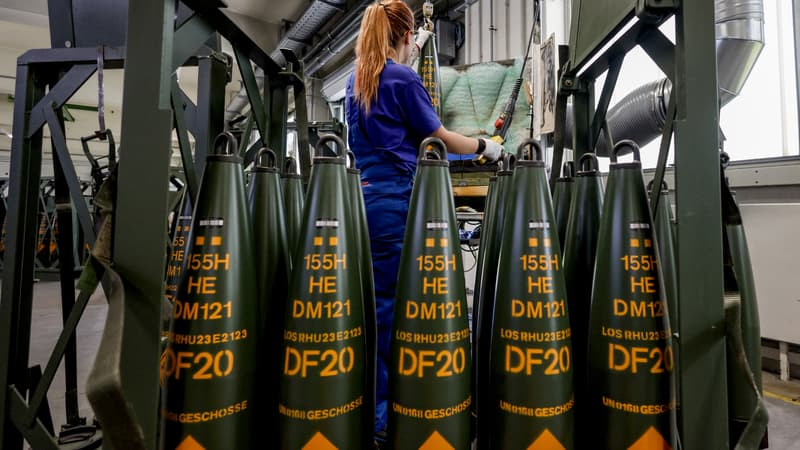We can’t stop it anymore. The German giant Rheinmetall and the Romanian Government announced on Monday the creation of a propellant gunpowder factory in Romania, in a context of European rearmament due to the Russian threat and the invasion of Ukraine. Rheinmetall thus aims to “strengthen its presence on NATO’s eastern flank” and “establish strategically important propellant powder production in the country,” explains a statement from the group.
The German group signed an agreement on Monday with the Romanian state company Romarm for the construction of a factory in the city of Victoria, in central Romania, whose production will begin in 2028. The agreement foresees that Rheinmetall will own 51% of the joint company created with Pirochim Victoria, a subsidiary of Romarm, to jointly invest more than 500 million euros. Annual production capacity is expected to be about 300,000 modular propellant charges, requiring about 750 tons of gunpowder. To this will be added 200 tons of powder to meet local demand in Romania.
A few days after the announcement of a new factory in Bulgaria
The country, which belonged to the defunct Soviet bloc, shares a 650-kilometer border with Ukraine and periodically reports violations of its airspace by Russian drones.
With this new factory, which is expected to create around 700 jobs, Rheinmetall is getting closer to its goal “of reaching an annual production capacity of 20,000 tons of propellant powder until 2030,” added Armin Papperger. Rheinmetall announced at the end of October the construction of another factory in Bulgaria to produce gunpowder, artillery ammunition and modular loading systems, representing an investment of one billion euros. This should be operational in fourteen months. On the Frankfurt Stock Exchange, Rheinmetall shares gained 3% at 3:00 p.m. GMT.
The group takes advantage of the turn towards rearmament initiated by European countries, including Germany, after the Russian invasion of Ukraine. Moscow is now seen as a direct threat, preparing for a military confrontation with NATO later in the decade. Berlin ended years of military underinvestment, with conservative Chancellor Friedrich Merz, who came to power in the spring, aiming to make the Bundeswehr “the most powerful conventional army in Europe.”
Source: BFM TV


